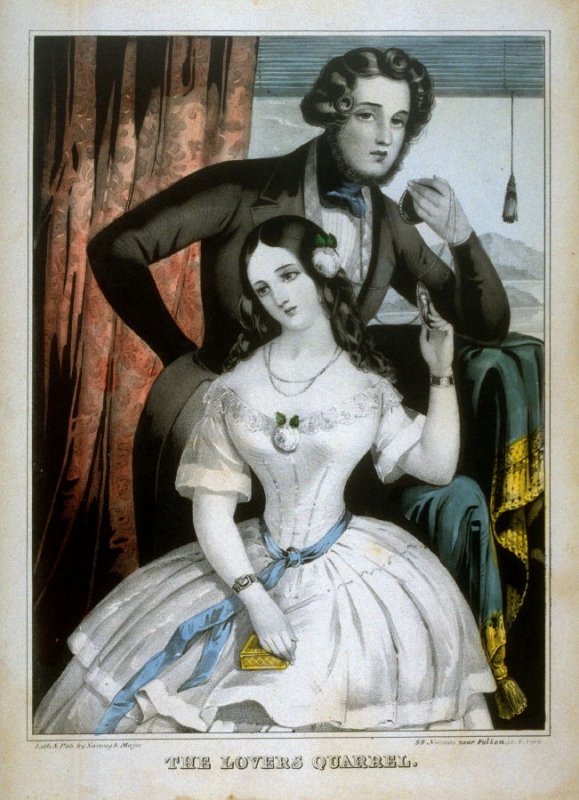FWP:
SETS == DIALOGUE;
REPETITION
SPEAKING: {14,4}
Here's a remarkable network of word- and meaning-play based on the word kahnaa , 'to say', which is used no fewer than six times in two lines, in a variety of complex ways, including quoted dialogue, anticipated dialogue, and idiomatic forms.
In the first line, the subjunctive 'I would say' [kahuu;N] excellently conveys the sense that the speaker would try to say something, but would then be at once cut off: 'you say' [kahte ho] is in the habitual, so perhaps this scenario occurs over and over again. And what the beloved says is something like 'Please state your case' or 'Please get to the point' [mudda((aa kahiye]; the polite imperative verb here suggests not real courtesy but a dismissive, semi-bureaucratic indifference. Here are some of the possible ways to read the line:
=When the lover tries to talk about his situation/condition, the beloved insists
on hearing instead about his 'purpose'.
=When the lover tries to say something, the beloved interrupts him and makes a show of indifference, ignoring his words.
=When the lover speaks, the beloved pretends not to have heard him, and demands that he repeat everything.
In the second line, the speaker appeals for justice from the beloved herself: 'only/emphatically you say' or 'you yourself say' [tumhii;N kaho]. And what is the problem being presented? The complaint has two readings, thanks to the versatility of yuu;N : 'if you would say this' suggests that the problem is that she would say the words quoted in the first line, mudda((aa kahiye . And 'if you would speak like this' suggests that she would say a variety of other dismissive, indifferent things as well.
But the best part is the final phrase, kyaa kahiye . Here are some of its possibilities:
=Something like 'what can I say?'-- an all-purpose colloquial
response, the verbal equivalent of a shrug of the shoulders.
='What can anyone say? what words are there for such a situation?'-- a colloquial
form of the inexpressibility trope.
='How remarkable! how extraordinary!'-- an exclamatory idiom that's often
used for praise, perhaps sarcastic praise of the astonishing behavior the beloved shows.
='What should one say?'-- a request for information: in such an untenable
situation, please suggest what kind of reply should be made.
This verse-- and this whole ghazal in general-- offers a case study in the idiomatic uses of kahiye (and sometimes other polite imperatives as well). Grammatically kahiye is the polite imperative of kahnaa , of course, and it's certainly used that way, but very often it's used idiomatically, to apply to proposed or approved behavior by a variety of grammatical persons, in a variety of situations. (The same thing is done with baniye in {209,5}.)
When it's part of the even more pithily idiomatic kyaa kahiye , its expressive possibilities are further expanded; for examples of such colloquial flexibility, see almost all the verses of {201}.
For a similarly complex treatment of batlaanaa
, 'to tell', see {46,7}.

Ghalib:
[See his reference to this ghazal along with {201,1}.]